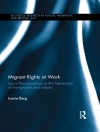The ongoing confrontation with Iran, the war against ISIL, the instability in Iraq, the Civil war in Syria, and the conflict in Yemen have all caused major changes in the security situation in the Persian Gulf and in the regional military balance. The strategic partnership between Arab Gulf states, and with the United States and other outside states, must now evolve to deal with conventional military threats and a range of new threats, including ideological extremists, non-state actors and their state sponsors, and a growing range of forces designed to fight asymmetric wars. This new report from the CSIS Burke Chair in Strategy provides a 2015 assessment of the Gulf military balance, the military capabilities of each Gulf state, the role of the United States as a security partner, and the priorities for change in the structure of both the Gulf Cooperation Council and the Arab Gulf military partnership with the United States. The assessment goes far beyond the conventional military balance and examines how force developments in the region affect joint and asymmetric warfare, missiles and missile defense, nuclear forces, as well as terrorism, the role of non-state actors, and outside powers.
Anthony H. Cordesman
Arab-U.S. Strategic Partnership and the Changing Security Balance in the Gulf [EPUB ebook]
Joint and Asymmetric Warfare, Missiles and Missile Defense, Civil War and Non-State Actors, and Outside Powers
Arab-U.S. Strategic Partnership and the Changing Security Balance in the Gulf [EPUB ebook]
Joint and Asymmetric Warfare, Missiles and Missile Defense, Civil War and Non-State Actors, and Outside Powers
Acquista questo ebook e ricevine 1 in più GRATIS!
Lingua Inglese ● Formato EPUB ● ISBN 9781442258990 ● Casa editrice Center for Strategic & International Studies ● Pubblicato 2015 ● Scaricabile 3 volte ● Moneta EUR ● ID 5214841 ● Protezione dalla copia Adobe DRM
Richiede un lettore di ebook compatibile con DRM












